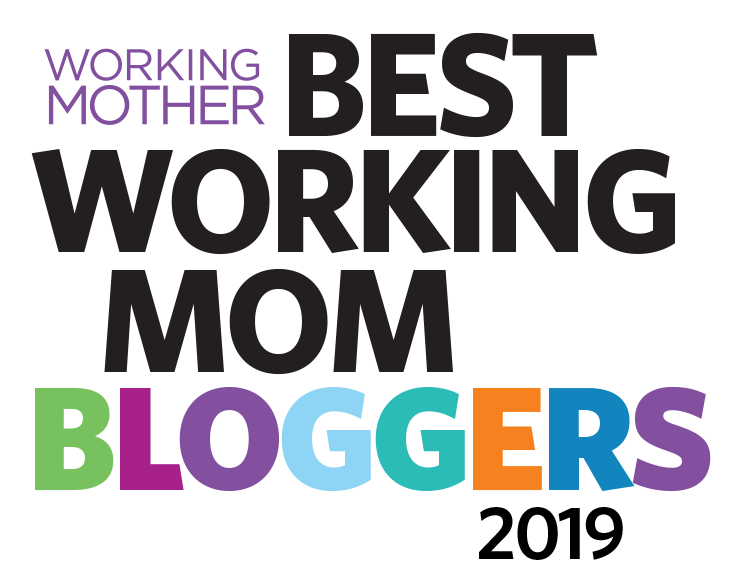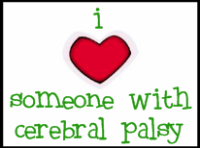Commuting home a couple of weeks ago, our train passed one that had derailed. One of my neighbors was sitting across from me, and we talked about it. I wondered out loud: Could a train derail while it was on an overpass and fall? When the ticket taker walked by, I asked. "Most times when trains derail it's on ground but yes, it could derail on an overpass," he said. I grimaced, and he grinned at me and said, "It's like my mother used to say: If you don't want to know, don't ask."
I definitely have that problem, especially when it comes to Max. From the second we knew something was wrong, I asked doctors and nurses a million questions including ones that didn't do Max or me any good. "He's arching his back, is that normal?" (No.) "He's thrusting his tongue, is that normal?" (No.) Have you ever seen a baby who had a bilateral stroke?" (No.) "Is it worse to have a stroke or be a preemie? (Can't answer that.)
Over time, I learned to quit torturing myself like that, although it's not possible to control information people share. Like the neonatologist who informed me that the only moms he'd ever met who had babies with strokes, as Max did, were crack moms. Or the recent form I got, attached to a poster Max had drawn at camp that won an award. It stated that his level of function is "mid," which I assume means mid-range.
It was a shock to see. I never think of Max that way.
The best piece of advice I ever got about raising a child with special needs was to look at how he's doing, not at his medical records or the X-rays of his brain with all the grayish-white blobs where the damage occurred. The film and paperwork are tucked away in a closet. What I see is a sunny kid making progress as best as he can, a kid who's defied the doomsaying doctors. Cerebral palsy is just one part of who Max is; it doesn't define him.
When we go to annual visits to the pediatrician, neurologist and physiatrist, I bring a long list of questions about Max's care and treatment. I am constantly emailing his teacher and therapists about stuff that will help him. But I don't ask about things that will only distress me.
When we go to annual visits to the pediatrician, neurologist and physiatrist, I bring a long list of questions about Max's care and treatment. I am constantly emailing his teacher and therapists about stuff that will help him. But I don't ask about things that will only distress me.
Given this, I am really perplexed about why I did the following. While we were having lunch at home recently, Sabrina glanced at Max and said, "Why are his eyes so big?" She meant his pupils. Sure enough, his were dilated. And it wasn't just the lighting we were in because after that I noticed that his pupils were always in that state. It wasn't something I'd ever picked up on before.
I emailed the neurologist. Was it the seizure meds, I wondered? No, he wrote back: "It's his baseline neurological tone, as a consequence of the strokes."
My heart sank. I started thinking about the brain damage, and whether neurons had formed new connections and networks around the damaged areas. What would his brain look like if we took X-rays now? Dave and I have never wanted to, and the neurologist hasn't thought it necessary. If Max's brain didn't show improvement, we'd get upset. And if it did, well, that wouldn't tell us anything we didn't already know about his functioning—or give us clues into his future. But there I was, sadly pondering how Max would be different if the damage had happened in different parts of his brain, or if the stroke hadn't been so large.
The sad, dispiriting, freakout thoughts I try to avoid.
I was annoyed with myself for asking. I'd had a feeling what the answer would be, and I didn't need to know. The information tells me nothing about Max, his abilities and who he is.
I haven't been thinking too much about it since, nor have I been staring into Max's eyes to check on them. Well, maybe just a little bit. Soon enough, I hope, I will bury that piece of information in my brain, like the medical records and X-rays lying in the depths of the closet. And once again, all I'll see is Max.
Image: Flickr/SarahSphar
Image: Flickr/SarahSphar












Like you said Ellen CP is just a part of Max it does not define him try to continue seeing Max the person not his eyes, his arms or his feet.
ReplyDeleteThanks for sharing this, it is EXACTLY what I needed to hear!
ReplyDeleteHi Ellen -- I think that when we go around in circles asking why about things related to our kids part of it is a control thing. If we could only pin down exactly "why" something happened, it gives us a sense of control. It's hard to accept that many things are just random and that we will never have a definitive answer (in the same way I will never really know "why" the sky is blue). xo
ReplyDeleteThis is so true...Thanks for this...but somehow, at least for me, my constant want to give my son everything he needs to heal and excel always raise those types of questions.
ReplyDeleteYes, I totally identify with this. I have trouble not googling the hypotheses that the doctors throw around (we have no diagnosis for my daughter), then freak out at what I read. It's a negative cycle but the temptation to know, to understand, is so strong. The latest hypothesis is leukodystrophy, which I'm struggling with as I thought we had ruled out a degenerative condition. It's such a roller coaster. (I don't like roller coasters, figurative or real)
ReplyDeleteBurying the answers to question we never should have asked is a hard thing to do! Of course I don't want my child to be defined by her disabilities. I have a hard time not doing that myself sometimes! I have been told by some that by accepting Bethany's disabilities I am preventing her from being healed. Apparently I should ignore all her issues so as not to stop God from making her all better! Being the mom of a special needs kid is definitely not always easy!
ReplyDeleteEllen....
ReplyDelete"What I see is a sunny kid making progress as best as he can, a kid who's defied the doomsaying doctors. Cerebral palsy is just one part of who Max is; it doesn't define him.". I needed to read those words right now!! ;)
Well!! I am off to work on a fictional children's story!! ;-D
--Raelyn
I am in that place right now of questioning and comparing my son to his peers. To reading all the evaluations and feeling my heart sink. We don't know yet what is wrong. But my son Noah is a delight and so many people who know him also adore him. So even though he isn't where he should be developmentally, he is where he should be in his charming ways. I'm praying the genetic test we will do may provide a diagnosis so I can stop wondering about Noah and focus on appreciating him.
ReplyDeleteI understand completely - there are a lot of things I wish I had not asked. It is not a denial thing - it is a survival thing.
ReplyDeleteI so understand this post. When we got Simeon's speech evaluation back I was devastated. It really didn't tell me anything I didn't know, but seeing it written down on a piece of paper always gets me torn up inside. It almost makes me feel the way I felt when I was pregnant and we knew my son would be born with spina bifida. It all just looked so bad on paper, ya know? Our pediatrician used to require us to fill out a developmental questionnaire at every well check. It was so painful just marking the "no" box for page after page. I finally wrote an "addendum" with some questions I could say "yes" to to cheer myself up. I turned it in along with their evaluation. They never made me do one again. :) I posted a photo of it here: http://www.whatdoyoudodear.com/2013/02/addendum-for-simeon.html
ReplyDeleteSo good to read another person's take. I ask enough questions and the surgeons will answer them with details (not to that point with neurology yet, think I 'm to the point where I can tell them to stop!, stop saying there's a chance of growing out of seizures, would prefer they just admit they don't know and the chances are slim). Knowing oneself and the differences between info that helps and info that weighs one down (or misleads) is part of why I read this and a few other blogs.
ReplyDeleteLove the group therapy.
I feel a little bit of what you are thinking about, from a different angle. When I was I think 30 years old or so, I was visiting my Dad for a few days. He had recently moved, so there were boxes to be unpacked, one or two of which contained old files and records. I was helping him sort them out, and I found a folder that contained a complete evaluation done on me when I was 13 years old. I think it was done then because we had moved to a different state and got hooked up with a new teaching hospital, and they must have decided it was a good time for a full re-evaluation. Anyway, I read the whole damned thing. It was hard right then to read some of it. A few things were kind of nice to read, but it was so clinical and bloodless. Plus, I did find out a handful of things I'd not known before. Nothing shattering, but it did bother me for awhile thinking I was a full-on adult and still didn't know all there was to know ... that other people knew. Personally, though, I would rather know all the details. I can compartmentalize as needed, and not dwell on them day to day. But at some point I want to know all that can be known and then decide what to do with it. All that technical jargon doesn't feel like me at first, but in fact it IS me, it's part of me. It doesn't "define" me, but it isn't separate from me, either. Believe it or not, some of it even helps explain me, shed light on aspects of myself that might otherwise be a perplexing mystery. I guess I'm being devils advocate here and saying that evaluations aren't easy to process, but they aren't insulting and they don't have to undermine how you feel about someone. Unless you develop an unhealthy obsession with them ... like focusing all the time on certain metrics ... tests and evaluations can be useful, in carefully calibrated doses.
ReplyDeleteI so appreciate this perspective and think it will help me and my husband over the next few months. I'm 34 weeks along, and my doctors recently told us our IUGR baby shows signs of a heart problem and maybe T21. I've been getting worked up after asking questions that have no answers yet (how will this tiny baby tolerate heart surgery, etc). While I'm starting to read up on how to best take care of him/her, this post made me feel like it's okay not to obsess over the unknown. Thank you!
ReplyDelete